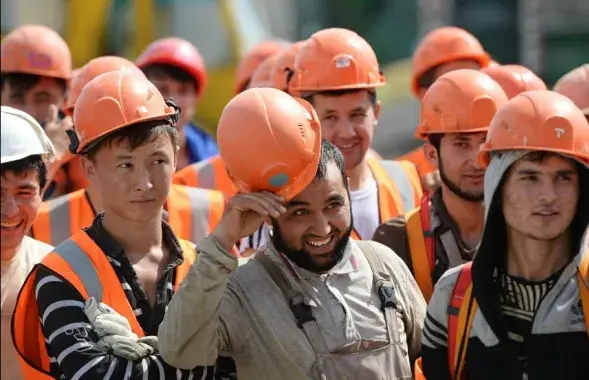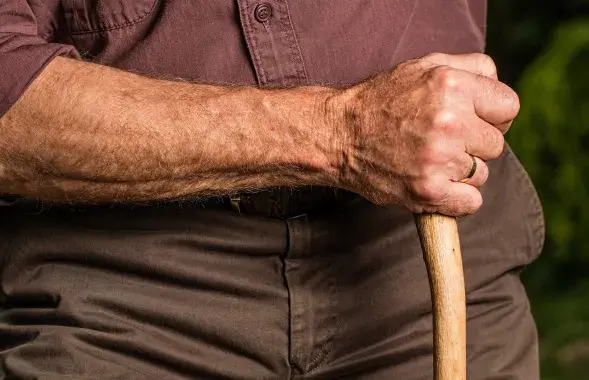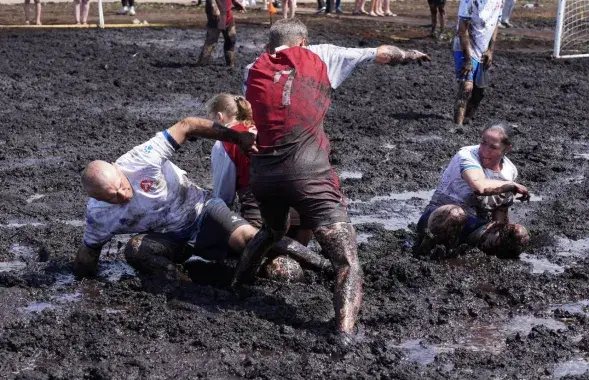Number 3, queues, slippers, Cock-the-Roach: what else can be banned in Belarus?
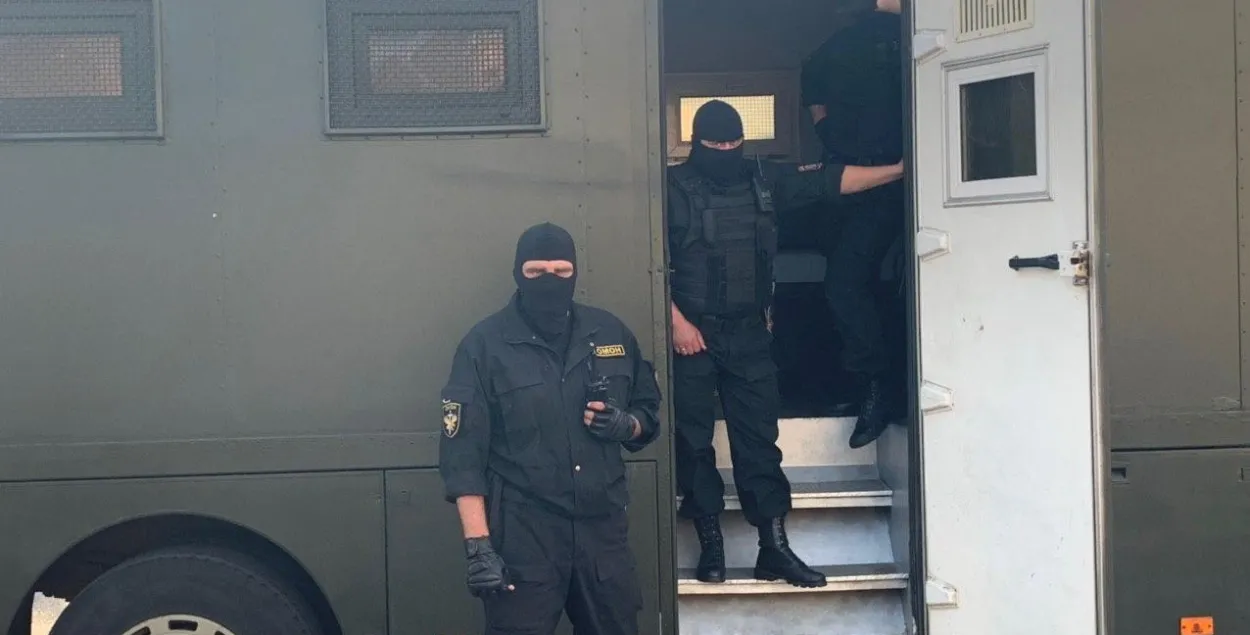
Riot police in Belarus / Euroradio
The SYMBAL.BY store is now officially closed. Its owner Pavel Belavus cited pressure from the authorities as to the reason for the closure. People, who liked Belavus' business, lined up near the store and...ended up in a police van.
Belavus links the pressure on SYMBAL.by with the appearance of shirts with the meme inscription ПСІХО3%. The popular in Belarus meme about 3% of Lukashenko's rating, as well as the nickname "Cockroach," has long been noticed in the presidential administration. At a meeting with opponents of the lead battery plant construction in Brest, Lukashenka complained about both offensive nicknames.
The "3%" meme has become truly popular: graffiti can be found almost on every fence and wall, while the 3% discount is ironically offered by private businesses throughout the country. And if the closure of SYMBAL.BY is really connected with the pressure of the authorities because of the thematic shirts, then we have sad news: in the near future, there may be many more things to ban in Belarus. Let's fantasize about what will happen if tightening the screws in Belarus goes to the point of absurdity. Some points have been added for jokes. But it shouldn't be surprising in the country, where riot police clear a queue to the store.
Number "3"
It is unlikely, of course, that Education Minister Ihar Karpenka will be able to rewrite mathematics textbooks in such a way as to exclude the study of the number "3" and the notion of percent. Nevertheless, the authorities may take a number of measures against those who like to be ironic.
The businesses, which now offer 3% discounts, may be given a hint: 2% and 4% are acceptable, and the figure between them is a direct way to another inspection, which may be the last. And the case of Belavus shows that if there is a business, there can always be found a reason for the closure.
And the struggle of utility workers with graffiti artists will end with the first person caught red-handed, to whom all the "3%" inscriptions in his settlement will be attributed. The amount of both fines and damages will be impressive, and we like to punish with the ruble.
We won't blame the authorities if they decide to remove the "3%" graffiti painted on the Tabakerka cigarette kiosks from the streets. The inscription on them for some reason is particularly common.
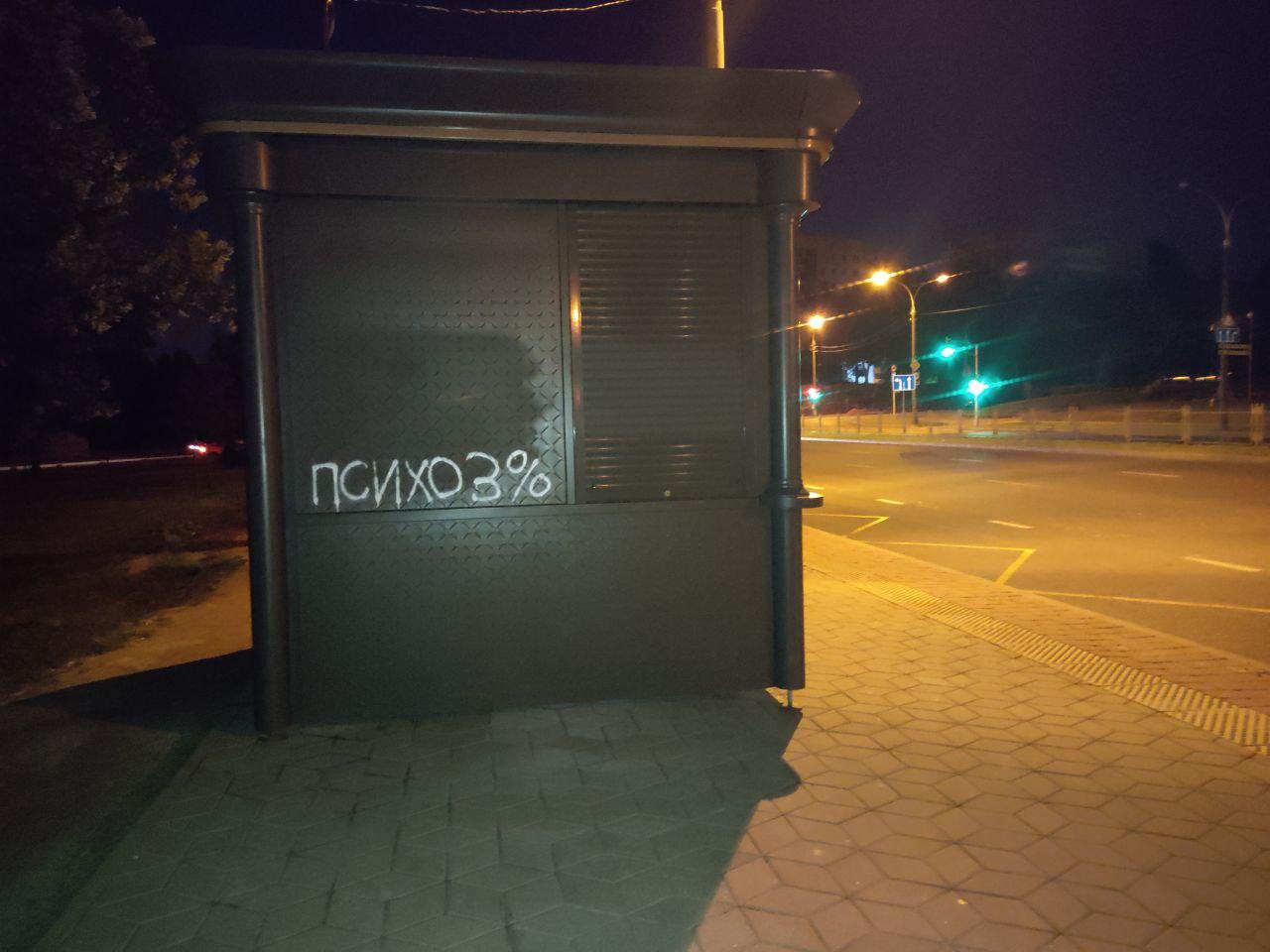
"Cock-the-Roach" fairy tale
The "Stop the Cockroach!" slogan, which was popularized by blogger Syarhei Tsikhanousky, gives unlimited space for the imagination of punitive bodies. You can start with the fairy tale "Cock-the-Roach" by Kornei Chukovsky. Fragments of how the animals unite against the mustached usurper were repeatedly quoted during the blogger's video streams by his supporters.
The tale, which was first published in 1923, was then perceived by many as a satire on Joseph Stalin. However, in the Soviet Union, the work was not banned: there were even made two cartoons, one of which was produced in Stalin's lifetime.
But nothing prevents Belarus, which is often perceived as a "Soviet reserve", to catch up and overtake the Soviet Union in the idiocy of censorship. Do not even be surprised if suddenly the fairy tales of Kornei Chukovsky disappear from the shelves of bookstores.
By the way, the book "The Revolt of the Masses" by Spanish philosopher Jose Ortega y Gasset, mentioned by Viktar Babaryka, the favorite of the current presidential campaign, is no longer available in online stores. However, for example, the OZ.by platform explains this by the increased readership interest. They say they sold out the entire circulation.
Slippers
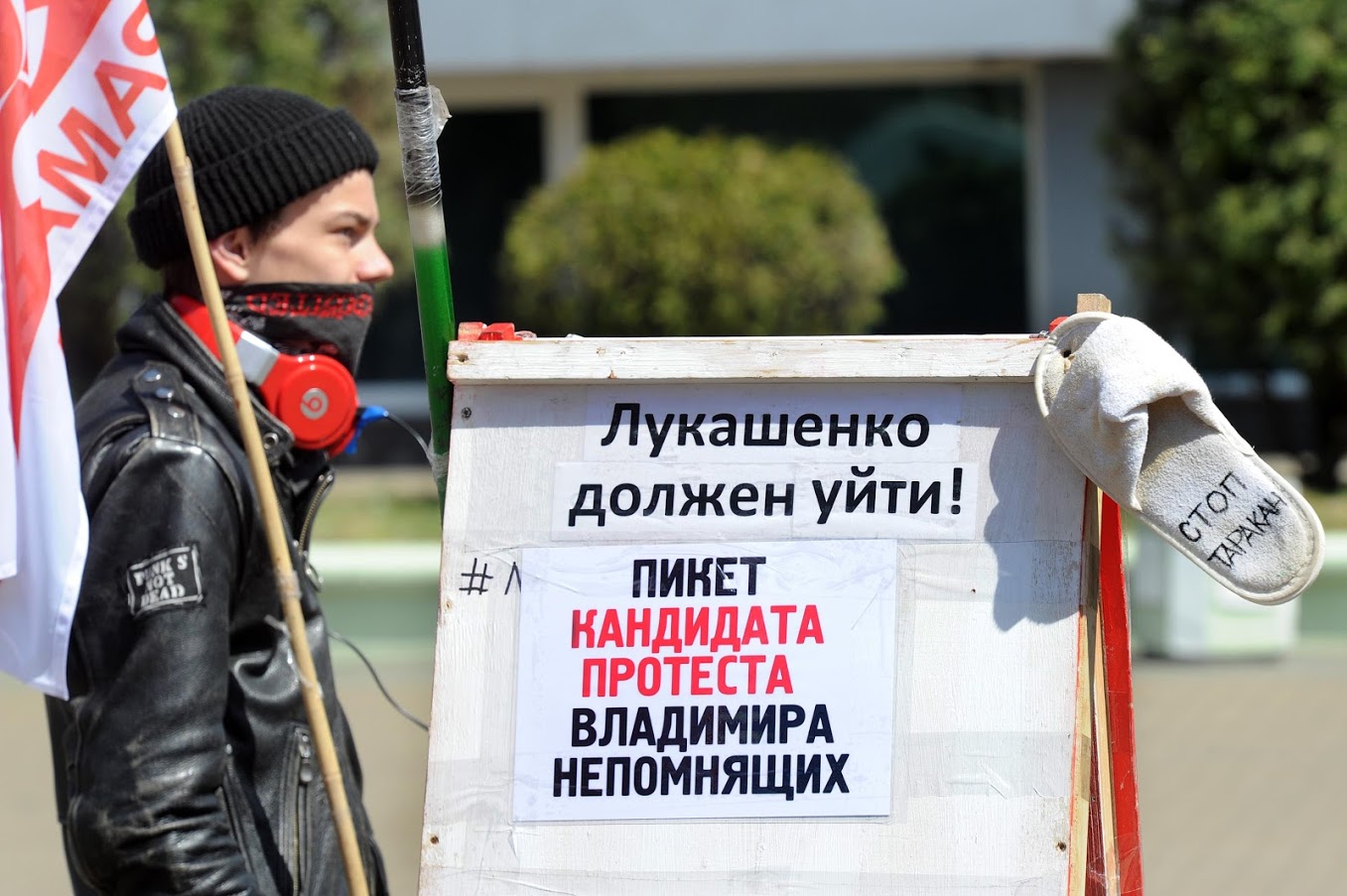
A cockroach slip has become one of the attributes of the protests in Belarus. Pickets in support of Svyatlana Tsikhanouskaya saw people bling ordinary slippers and meter-long ones, specially made of cardboard. The slipper is a very convenient symbol: it conveys the essence, it is present in every house, it is much easier to carry and use than, for example, a flagstaff for a white-red-white national Belarusian flag or a banner with a political slogan. Everything is ingeniously simple.
You can't take the slippers off the market. There's a lot of them in every house. But a ban on home shoes in public places doesn't seem unrealistic. Perhaps the Interior Ministry will have a new special department called "Fashion Police".
Lines
The summer of 2011 entered the modern history of Belarus with "silent actions," but the summer of 2020 will undoubtedly be remembered by the lines as a new way of protest of Belarusians. It all started with lines to the tables, where signatures for alternative presidential nominees were collected. The rallies continued with lines in support of Lukashenka's imprisoned rivals. And here's the result: a harmless line to the store is dispersed by riot police.
Plain-clothed police with camcorders were noticed even in the lines for drinking water, which legally formed next to the tanks in several districts of the capital. But everything was legal here. The water really stank, it was impossible to drink it, and in hot summer people had to find a solution.
Almost any street line can be qualified as an unauthorized mass event. Fighting them, perhaps, will have a positive effect: in the IT country, certain services will finally become digital.
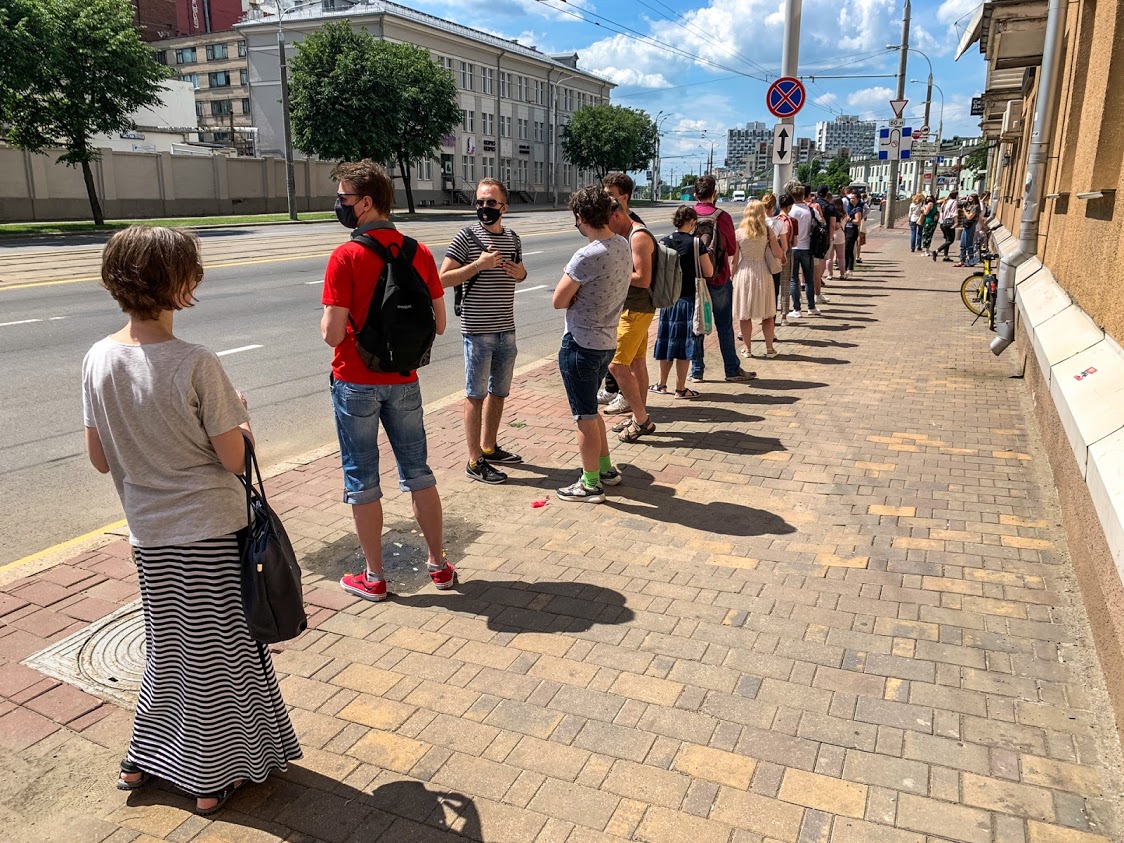
YouTube
The fight against bloggers in Belarus has entered the final stage: many owners of major political channels, both on YouTube and Telegram, are already behind bars.
But putting all bloggers behind bars will not give a guarantee that no new ones will appear. Why not block the platforms?
After witnessing the Russian experience of the lost war with Telegram, the Belarusian authorities are unlikely to try to "shut down" this messenger (moreover, there are many official channels of the Belarusian agencies, as well as the channel "Pool of the First", close to the Presidential Administration's press office which uses it). On the other hand, one can easily try it with YouTube. China, North Korea, Iran, Syria, Sudan, Turkmenistan, Nepal -- all these governments have succeeded. How are we worse?


